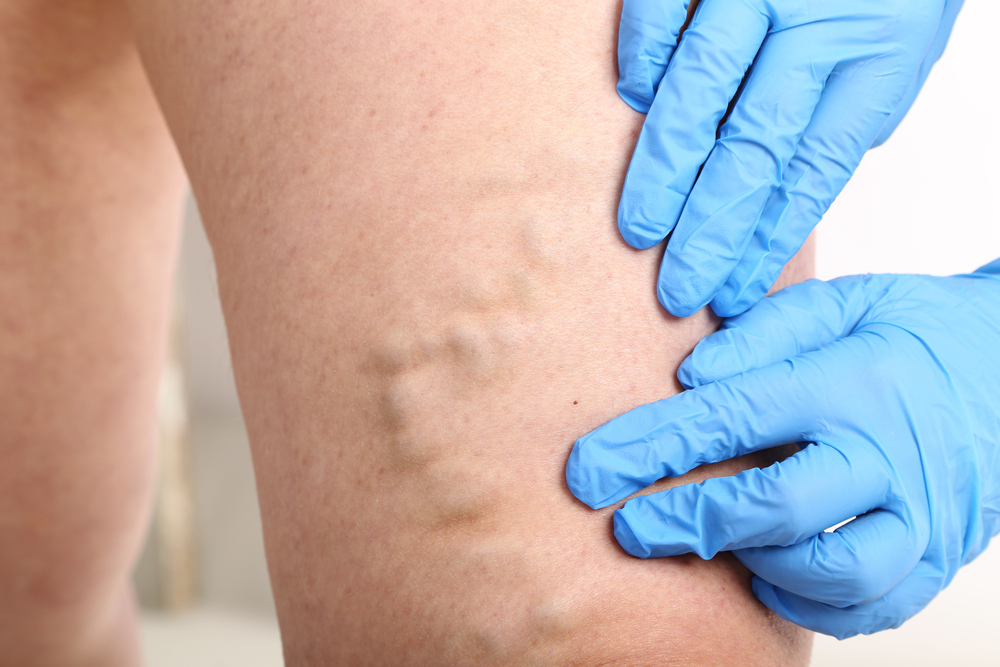Many people view varicose veins as a simple cosmetic issue. While the twisted, bulging blue or purple veins can be unsightly, they often signal more than just a surface-level problem. Understanding the full range of varicose vein symptoms is crucial for knowing when to seek professional medical advice. For some, these symptoms can significantly impact daily life, and without proper care, they may lead to more serious health complications. This guide will walk you through the signs that indicate it’s time to explore varicose vein treatment options and consult with a specialist. Get a consultation with the best vascular disease specialists in Brooklyn.
Understanding Varicose Veins and Their Causes
Varicose veins are swollen, enlarged veins that typically appear on the legs and feet. They occur when the small valves inside your veins stop working correctly. In healthy veins, these valves open and close to keep blood flowing efficiently toward the heart. When they become weak or damaged, blood can flow backward and pool in the vein, causing it to stretch and twist.
Several factors can increase your risk of developing varicose veins, including:
- Age: Veins lose elasticity over time, making them more prone to damage.
- Genetics: A family history of varicose veins increases your likelihood of developing them.
- Gender: Women are more likely to be affected due to hormonal changes during pregnancy, pre-menstruation, and menopause.
- Prolonged Standing or Sitting: Lack of movement can hinder blood circulation in the legs.
- Obesity: Extra weight puts added pressure on your veins.
Recognizing Key Varicose Vein Symptoms
While the visible appearance of the veins is the most obvious sign, many other symptoms can accompany them. Paying attention to these physical sensations is key to deciding when to seek help. If you experience one or more of the following, it might be time to schedule a consultation.
Common Symptoms You Shouldn’t Ignore
- Aching or Heavy Legs: A persistent feeling of heaviness, tiredness, or dull aching in your legs, especially after long periods of sitting or standing.
- Swelling: Noticeable swelling in your lower legs, ankles, and feet that tends to worsen as the day goes on.
- Throbbing or Burning: A distinct burning or throbbing sensation in the areas around the affected veins.
- Muscle Cramps: Painful muscle cramps, particularly at night, can be a disruptive symptom.
- Itching: You may experience persistent itching around one or more of your veins.
When Do Varicose Veins Require Medical Attention?
Not all varicose veins require immediate medical intervention. However, certain symptoms are red flags that should prompt you to see a doctor or a specialist. Ignoring these signs can lead to more severe conditions, such as blood clots or venous ulcers.
Signs It’s Time to See a Doctor
If your symptoms progress beyond mild discomfort, it’s time to seek professional care. Watch for these warning signs:
- Persistent Pain: Your pain is no longer relieved by rest or elevating your legs, and it interferes with your daily activities.
- Skin Changes: The skin over your varicose veins becomes discolored (turning reddish-brown), dry, or scaly. This can be a sign of venous stasis dermatitis.
- Bleeding: The veins close to your skin may bleed easily, even from a minor injury.
- Sores or Ulcers: Open sores (venous ulcers) that are slow to heal, often appearing near the ankles.
- Sudden Swelling and Pain: A vein that becomes hard, tender, and painful, accompanied by redness of the skin, could indicate a blood clot (thrombophlebitis).
If you experience these more severe symptoms, visiting a cardiology clinic or speaking with a vascular specialist is highly recommended. While a primary care physician is a good starting point, a specialist can offer a more detailed diagnosis and treatment plan.
Exploring Your Varicose Veins Treatment Options
Fortunately, advancements in medical technology mean you have several effective and minimally invasive varicose vein treatment options. A consultation with a cardiologist or vein specialist will determine the best approach for your specific condition. The goal of treatment is to relieve symptoms, improve appearance, and prevent complications.
Common treatments include:
- Sclerotherapy: A solution is injected directly into the vein, causing it to scar and close. Blood reroutes through healthier veins.
- Endovenous Laser Ablation (EVLA): A small laser fiber is inserted into the vein. The laser delivers heat, which causes the vein to collapse and seal shut.
- Radiofrequency Ablation: Similar to EVLA, this procedure uses radiofrequency energy to heat and close the affected vein.
- Ambulatory Phlebectomy: Small skin punctures are made over the vein, and a specialist removes the vein in sections.
- Lifestyle Changes: For milder cases, your doctor may recommend compression stockings, regular exercise, weight management, and leg elevation to improve circulation and manage symptoms.
Varicose veins are more than a cosmetic concern; they can be a sign of underlying venous insufficiency that requires medical attention. By recognizing the key varicose vein symptoms and knowing when to seek help, you can prevent complications and improve your quality of life.
If your veins are causing pain, swelling, or skin changes, don’t wait. Schedule an appointment at our cardiology clinic to discuss your varicose veins treatment options. A proactive approach is the best way to ensure your legs stay healthy and strong for years to come. For any vascular problems, call us on + 1-718-367- 2555. The Vascular disease Specialists at Doral Health & Wellness consistently have outstanding patient satisfaction ratings. The professionals at Doral Health & Wellness Vascular Health Department Brooklyn can improve your health and quality of life because of their vast training and experience. New Yorkers can get the greatest medical and surgical vascular care at Doral Health & Wellness Brooklyn. If you need help, register your information and make direct contact with our doctors at https://yuz88hfiyh7.typeform.com/Doralintake. Visit us at 1797 Pitkin Avenue, Brooklyn, NY 11212.






